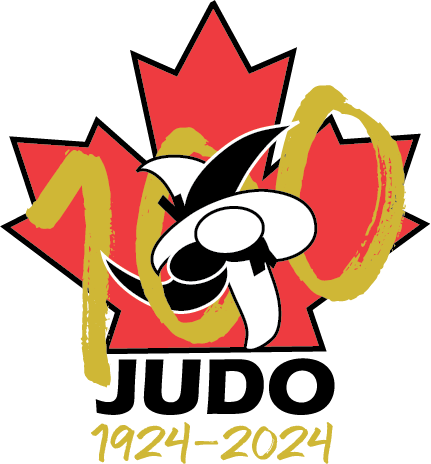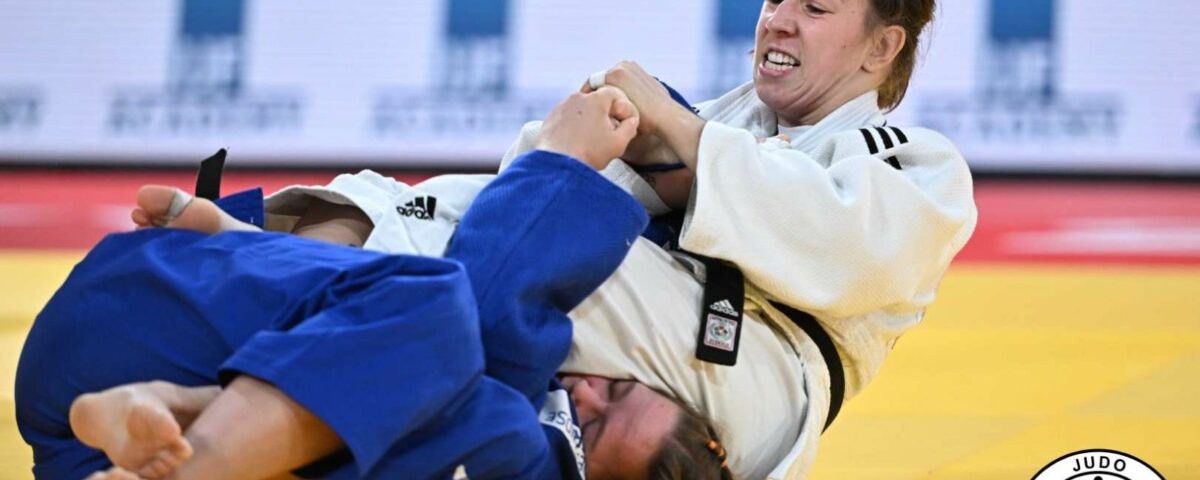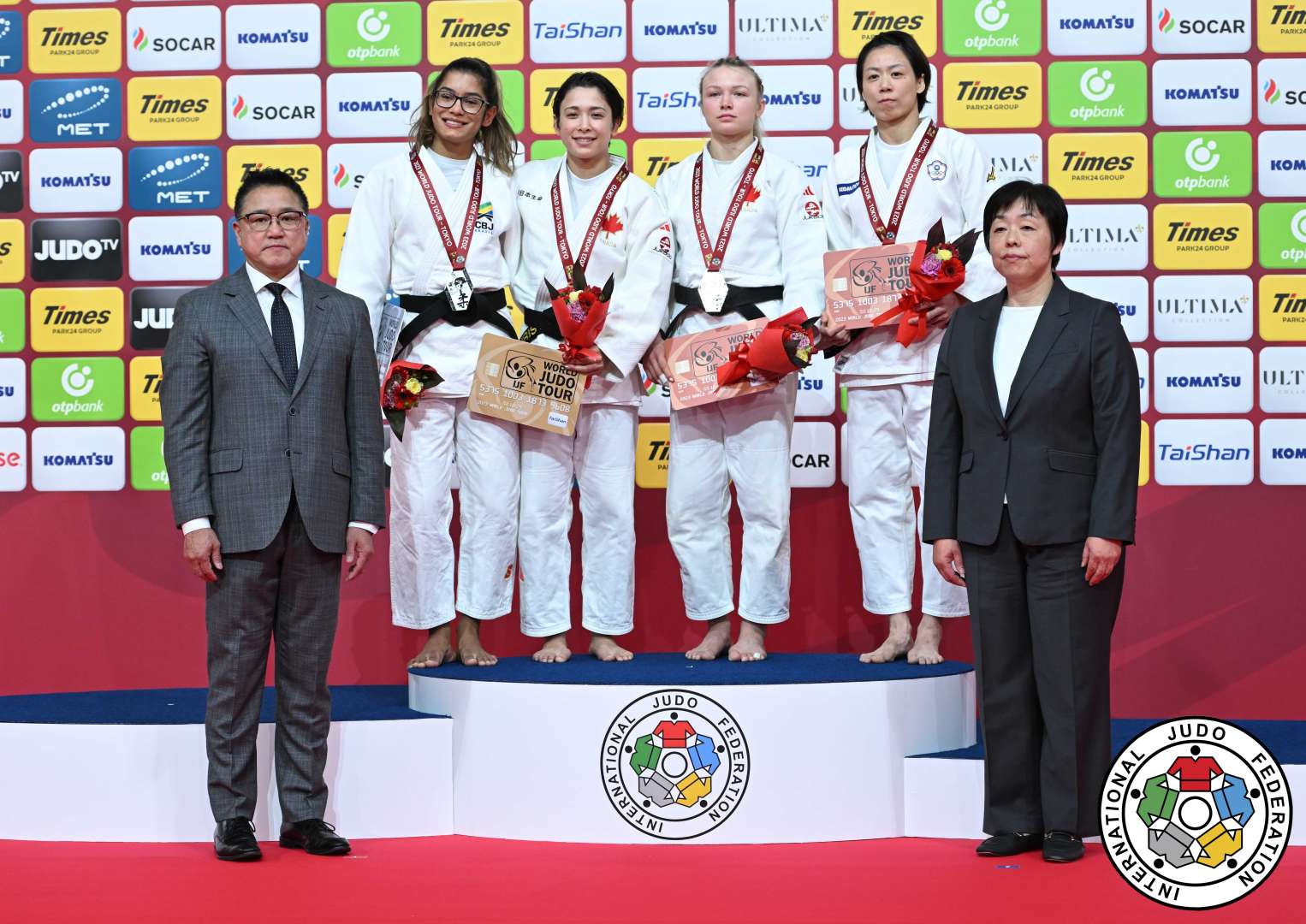
Christa Deguchi perfect in front of friends and family
2 December 2023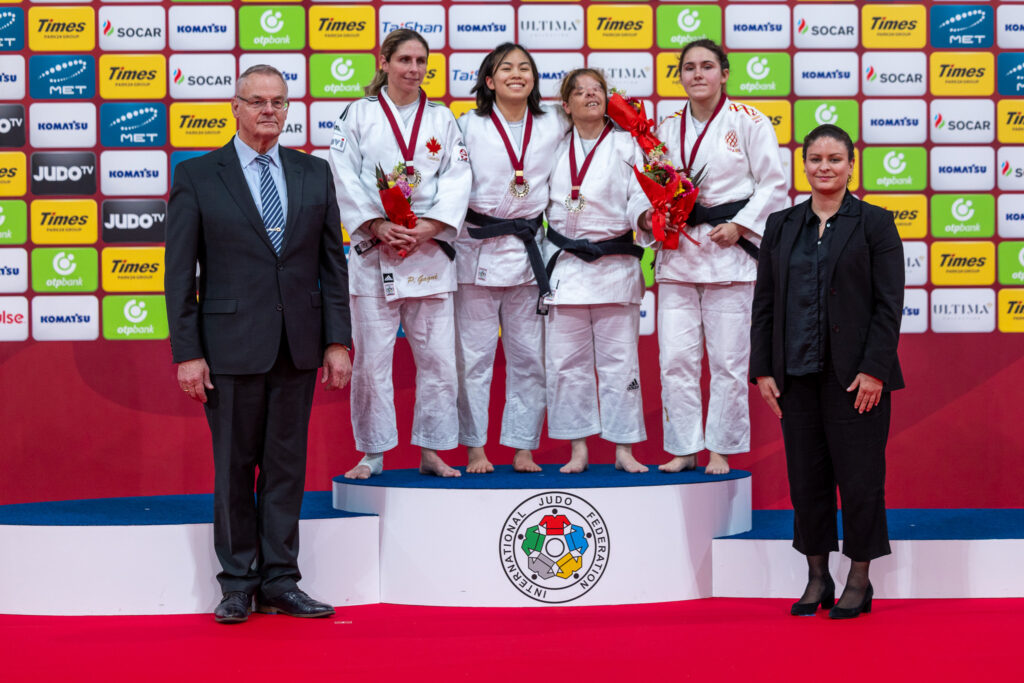
Priscilla Gagné comes back strong to win silver in Japan!
5 December 2023Finishing seventh in their respective categories, Catherine Beauchemin-Pinard and Shady ElNahas turned in the best Canadian performances of the day on Sunday, at the conclusion of the Tokyo Grand Slam in Japan. While these results may not have lived up to expectations for both athletes, coach Antoine Valois-Fortier believes that this competition will be a learning experience for the rest of the international calendar.
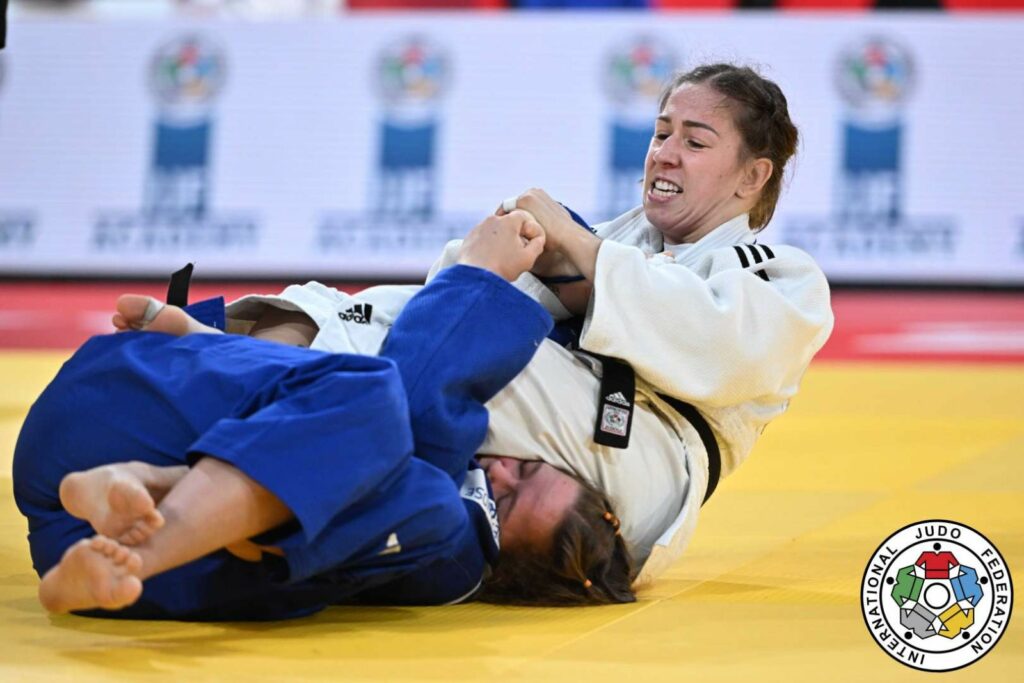
Nicely in rhythm, the Quebecer wanted to take that momentum into her next outings, but she couldn’t come out on top in extra time. Twice rather than once.
She first lost out to young Japanese Mizuki Takaki, who surprised her with a waza-ari in the seventh minute of the duel.
Beauchemin-Pinard then headed for the repechage, where another long battle awaited her. The Canadian judoka and Netherland’s Joanne Van Lieshout fought for over nine minutes on the tatami, and the official finally put an end to hostilities by awarding a third shido to the Canadian.
“To be honest, I’m having a tough time explaining how we managed to finish with three penalties to the Dutchwoman’s none. It’s a shame, because Catherine came very close to scoring on the ground. I’m going to watch the fight again and do my homework for the rest of the tournament”, commented Valois-Fortier at the end of the event won by Japan’s Miku Takaichi, who took home gold ahead of her compatriot Kirari Yamaguchi.
Meanwhile, Mizuki Takaki and Joanne Van Lieshout both climbed on the third step of the podium. Beauchemin-Pinard had to settle for seventh place.
Despite his disappointment, Canada’s coach was quick to point out the good moves made by his athlete, who will come back stronger the next time around.
“The main thing to remember is that Catherine set the pace in all her duels and clearly demonstrated her ability to string together tough fights, he remarked. She stood out on her feet, on the ground and was dominant. Things just didn’t work out in her favor.”
In the under 100 kg category, Shady ElNahas had a similar tournament to his teammate. He scored two wins that ended in throws to reach the quarter-finals, where he faced off against his closest pursuer in the IJF rankings, Gonchigsuren Batkhuyag, eighth in the world.
That’s when the tide turned.
The Mongolian athlete took advantage of an opening in the second minute to win by ippon and, eventually, make his way up to fifth place in the standings.
A few minutes later, ElNahas headed to the repechage for a clash with the world’s second-ranked athlete, Zelym Kotsoiev of Azerbaijan. Once again, the Canadian was unable to impose his rhythm and lost by ippon shortly after the halfway point.
“Shady’s two defeats were very similar, especially from a tactical point of view. Normally, he’s a very offensive guy, but he started with a bit of a slower pace. He was a little more on his heels. You learn from that and adjust. That’s what these competitions are for”, analyzed Valois-Fortier, while also pointing out the Ontarian’s two spectacular victories.
“He was solid and managed two very nice throws to win against good opponents. That’s something he’s been working on in recent weeks and it’s always satisfying to see the results.”
Also in action in the under 100 kg category, Kyles Reyes was stunned from the start by Japan’s Aaron Wolf. Kelly Deguchi (under 52 kg) was similarly unable to find a way to victory, losing in the first round to Croatia’s Ana Viktorija Puljiz.
The last two Canadians to compete in Tokyo, Julien Frascadore (-66 kg) and John Jr Messe A Bessong (+100 kg), both ended the competition with a record of one win and one loss.
This was also the first Grand Slam appearance for 18-year-old Messe A Bessong. “Slowly, we’re going to see more and more of him. Physically, he’s ready and we want to give him more and more fights at this level,” explained Valois-Fortier, who was satisfied with his protégé’s performance.
“He handled his first fight well tactically, but inexperience caught up with him in his second. It’s all part of the job and it’s perfectly normal. All in all, he’s spending time on the mats with the best athletes in competition and in camp, so it’s positive for him. He just needs to get more ice time!”, he concluded with a laugh.
The Canadian athletes competing in Tokyo will remain in Japan for the next two weeks to take part in a development camp. They’ll be back home in mid-December for the holiday break, before returning to the tatami early in the new year.



